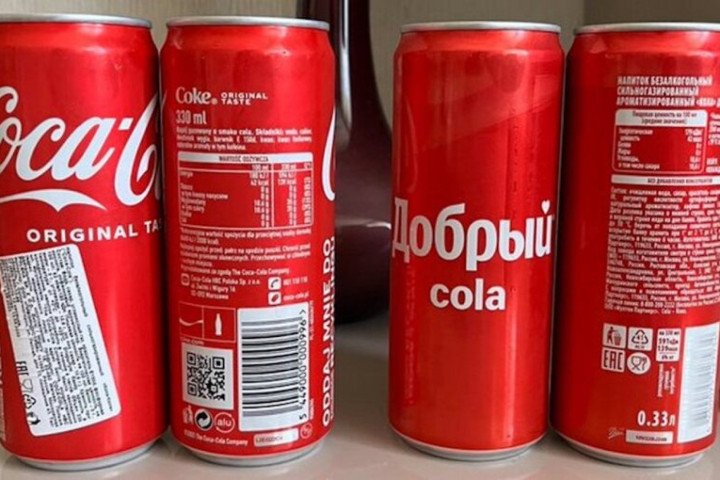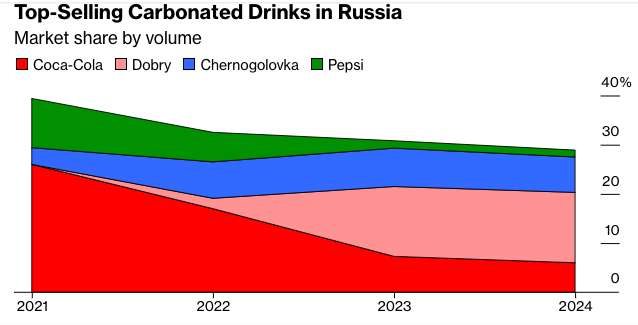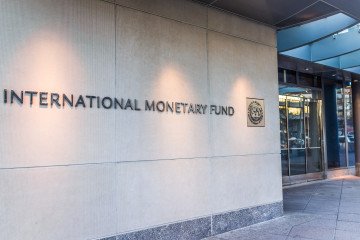- Category
- Latest news
Despite Exit, Coca-Cola’s Russian Operations Seem to Continue Under New Branding
Two years after Coca-Cola suspended operations in Russia due to the full-scale invasion of Ukraine, its red logo is still can be found in supermarkets all over the country.
This situation is due to Multon Partners, a company that bottled Coca-Cola products in Russia, and which is owned by a separate London-based company Coca-Cola HBC, according to a report made by Bloomberg.
While the main US Coca-Cola company stopped production after Russia’s full-scale invasion of Ukraine, Coca-Cola HBC, in which the American mother company has a 21% ownership stake, continued operating. To maintain a presence in the market, Multon Partners launched “Dobry Cola” (rus — “Kind Cola”), which has been very successful.

“Dobry Cola”, has been introduced with red cans and a font that resembles Coca-Cola’s, with a similar flavor. Notably, “Dobry Cola” has become the leading soda brand in Russia, holding a 13% market share according to a Russian research firm Prodazhi.
“The profits from selling Coca-Cola in Russia simply shifted to Coca-Cola HBC, which captured market share with the success of its ‘Dobry’ brand,” analyst of Independent Financial Intelligence CFRA Research, Garrett Nelson, explains.
Despite Coca-Cola’s withdrawal from Russia following the full-scale invasion, the beverage also remains accessible to consumers through imports from neighboring countries such as Georgia and Kazakhstan. A recently enacted law permits the sale of these branded goods even without the trademark holder’s consent. This continued availability has secured Coca Cola’s position as Russia’s third-largest soda brand, capturing a 6% market share according to Prodazhi.

Earlier, it was reported that the Coca-Cola Company submitted three separate applications for trademark registration with Russia’s Federal Service for Intellectual Property (Rospatent) in April 2024.
This situation exemplifies how multinational seems corporations to navigate around sanctions and find loopholes to maintain their market presence. Despite Coca-Cola’s official suspension of operations in Russia following the invasion of Ukraine, the continued availability of its products, either rebranded and sold through a network of affiliated companies or through imports, undermines the global effort to isolate and penalize Russia for its aggression.
-ba02b3bc86f0b624f99115809a6a34d0.jpg)
-5adb65e550f9dec24a01a35019e4b6b5.jpg)





